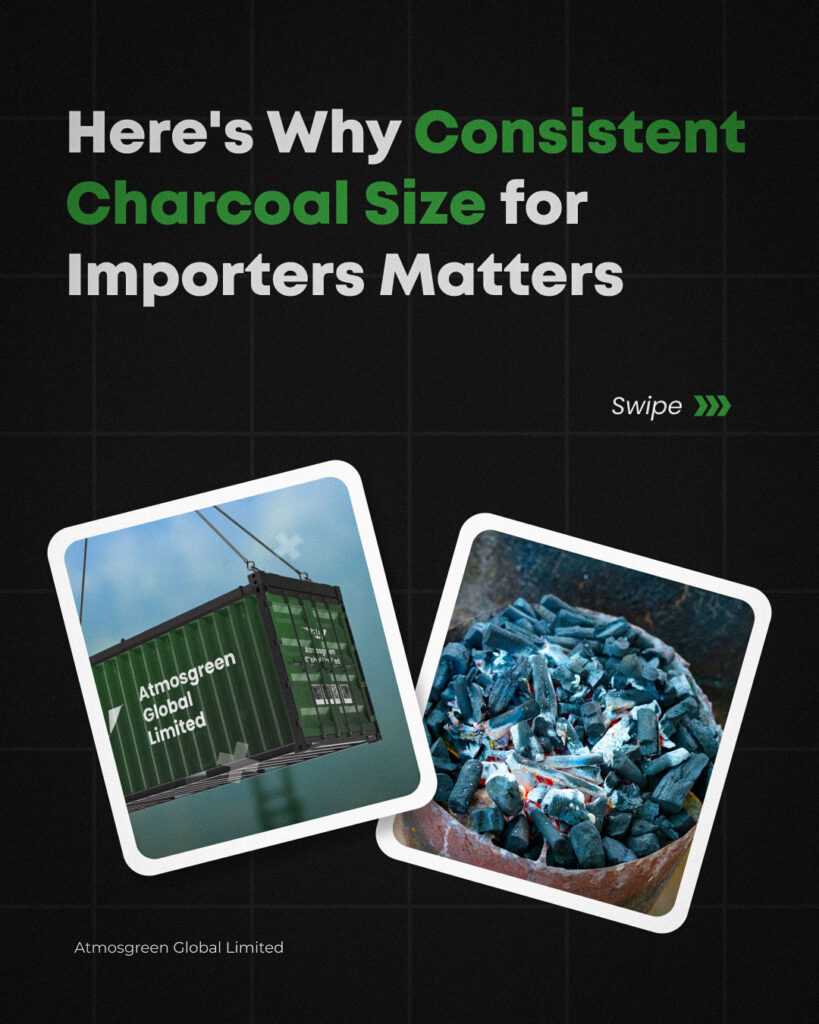





When it comes to the global charcoal trade, consistency is more than just a selling point—it’s a necessity. One of the most critical factors buyers look for is uniform charcoal size. Whether the end users are restaurants, households, or industrial processors, the size and grading of charcoal can make or break business relationships.
1. Performance and Efficiency
Consistent size directly affects burn rate and heat output. According to the FAO, uniform lump charcoal burns more steadily, making it preferred in commercial kitchens and barbecue industries. Large, uneven pieces may burn too slowly, while fine dust burns out quickly, wasting fuel. Importers serving restaurants or shisha lounges demand a predictable product to ensure cooking times and customer satisfaction.
2. Packaging and Transportation
Charcoal is bulky, and transport costs can account for up to 40% of the total landed cost in some markets (International Trade Centre data). Uniform sizing reduces wasted space in bags and containers, allowing more efficient packing and less breakage during shipping. Importers lose money when oversized lumps crush into fines during transit, reducing sellable volume.
3. Market Standards and Compliance
Many importing countries enforce quality standards. For example, the European market often requires restaurant-grade charcoal pieces to range between 20–80 mm in size. Shisha charcoal, on the other hand, demands cubes or hexagonal sticks of consistent dimensions. Failing to meet these standards can result in product rejection at customs, financial penalties, or reputational damage.
4. Customer Expectations
In Europe alone, annual charcoal imports exceed 800,000 tons (Eurostat). Retailers and distributors compete heavily, and consumer loyalty is tied to quality consistency. A bag that contains irregular chunks and powder frustrates buyers and lowers repeat orders. Importers rely on exporters who can deliver the same size grading every shipment to maintain long-term contracts.
5. Profitability and Reduced Waste
Charcoal fines—small particles created when larger lumps break—can make up 10–15% of a poorly handled shipment. These fines have little commercial value unless processed into briquettes. For importers, consistent sizing means less waste, higher margins, and the ability to guarantee premium-grade stock to clients.
Conclusion
Consistent charcoal size isn’t just about aesthetics—it’s about efficiency, compliance, and profitability. Importers operate in highly competitive markets where small details define success. Exporters who deliver uniform sizes build trust, reduce losses, and position themselves as reliable long-term partners.
In the end, size matters because consistency equals confidence—and in the charcoal trade, confidence drives contracts.